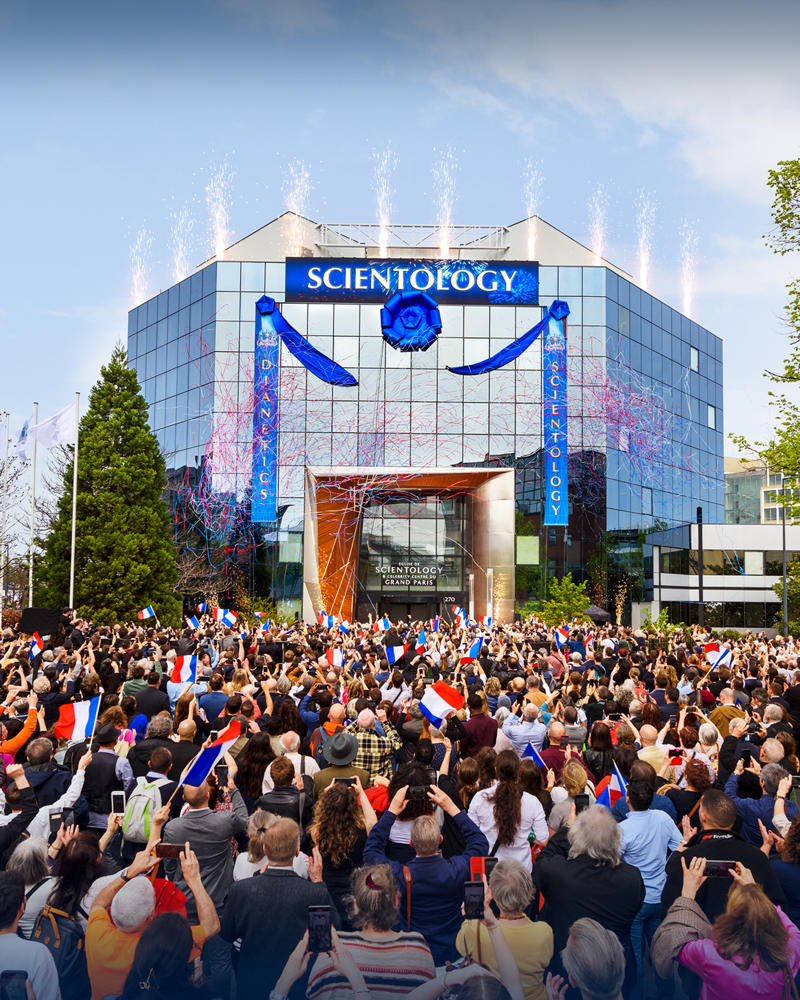The Worldwide Impact of Scientology: Development and Impact Worldwide
The Worldwide Impact of Scientology: Development and Impact Worldwide
Blog Article
Comprehending Scientology: Key Beliefs and Practices
In the realm of modern spiritual motions, Scientology stands as a subject of both inquisitiveness and conflict. Rooted in the teachings of sci-fi author L. Ron Hubbard, this belief system provides a special viewpoint on the nature of presence and the human spirit. Central to Scientology is the concept of the Thetan, a spiritual being that start a journey of self-discovery and enlightenment. As we explore the core beliefs and methods of Scientology, we will certainly reveal a complex cosmology and intricate rituals that devotees abide by in their pursuit of spiritual fulfillment. Nonetheless, behind the shroud of secret bordering Scientology exists a collection of disputes and objections that test its authenticity and influence on followers and culture at huge.
Beginnings of Scientology
The origins of Scientology can be traced back to the mid-20th century when L. Ron Hubbard founded the spiritual movement in the United States. In 1950, he released his critical work "Dianetics: The Modern Scientific Research of Mental Health," which laid the foundation for what would later evolve into Scientology.
Adhering to the success of "Dianetics," Hubbard established the Church of Scientology in 1954 to more develop and advertise his ideas. The church promptly gained appeal, attracting followers that were drawn to its distinct blend of spiritual support and self-help methods. Over the years, Scientology has spread internationally, developing churches and missions in various countries around the globe. Regardless of conflict and criticism, Scientology proceeds to be exercised by a dedicated neighborhood of followers who maintain Hubbard's trainings as a course to personal enlightenment and spiritual satisfaction.
Thetan and Spiritual Journey
Hubbard's mentors on self-improvement with auditing laid the foundation for followers to start a spiritual journey focused around the idea of Thetan in Scientology. According to Scientology ideas, Thetan refers to the never-ceasing spiritual being existing in every individual, different from the physique and mind. The objective of the spiritual journey in Scientology is for people to uncover their true nature as Thetans, devoid of the burdens of adverse experiences and previous injuries.
Central to this trip is the practice of auditing, a kind of spiritual therapy intended at assisting individuals address their past experiences and traumas to achieve a state of spiritual clearness and self-realization. Scientology. Through bookkeeping, fans aim to rid themselves of the "engrams," or unfavorable imprints from previous experiences, that hinder their spiritual growth and self-awareness
Scientology Cosmology
Within Scientology, the idea of cosmology digs into the company's ideas about the universe's structure and origin. According to Scientology trainings, the cosmos is seen as a complex and vast system that see here now runs based upon fundamental principles. At the core of Scientology cosmology is the idea that this article deep space is composed of numerous measurements and truths past what is perceptible to human detects.
Scientologists believe that the worldly globe is simply one element of a much larger and much more complicated spiritual truth. This spiritual reality is occupied by immortal spiritual beings referred to as thetans, which are considered real significance of individuals. The cosmological framework of Scientology likewise includes the idea of the dynamics, which are interconnected prompts in the direction of survival that drive all life types. These characteristics vary from the individual self to the entire world and represent the various facets of presence that Scientologists seek to integrate and enhance upon. On the whole, Scientology cosmology offers a thorough view of the world and humankind's place within it, directing followers towards spiritual enlightenment and self-improvement.
Practices: Auditing and Training
Scientology's exploration of cosmology perfectly leads to the functional application of its ideas via the core methods of auditing and training. Auditing is a central practice in Scientology intended at spiritual enlightenment and self-discovery (Scientology).
Learning Scientology entails a systematic approach to recognizing the trainings of the religion. Scientologists take part in courses and study products based on the works of L. Ron Hubbard to strengthen their expertise and application of Scientology concepts. Training enables individuals to become auditors themselves, leading others via the auditing procedure. This emphasis investigate this site on self-improvement and assisting others exists at the heart of Scientology's practices, cultivating an area devoted to individual growth and spiritual growth.
Conflicts and Objections
The general public perception of Scientology has been altered by various debates and criticisms that have questioned about its methods and impact on individuals and society. One major factor of contention is the allegations of exploitative practices within the Church, consisting of claims of forced labor, economic exploitation of members, and rough disciplinary steps. Scientology's deceptive nature, with its hierarchy and methods shrouded in secret, has actually fueled uncertainties and criticisms from both former members and the basic public.

Furthermore, Scientology's position on mental wellness treatments and its being rejected of psychological medicines have actually been heavily criticized by medical specialists and mental wellness supporters. These disputes have considerably impacted Scientology's credibility, leading to ongoing analysis and debate bordering its techniques and beliefs.
Final Thought

As we dive into the core beliefs and techniques of Scientology, we will certainly reveal a complicated cosmology and elaborate rituals that devotees stick to in their quest of spiritual satisfaction (Scientology). In spite of controversy and criticism, Scientology proceeds to be exercised by a committed neighborhood of believers who support Hubbard's trainings as a course to individual knowledge and spiritual gratification
Hubbard's trainings on self-improvement through auditing laid the groundwork for fans to get started on a spiritual journey focused around the concept of Thetan in Scientology. Auditing is a central practice in Scientology aimed at spiritual enlightenment and self-discovery.In conclusion, Scientology is a religion founded by L. Ron Hubbard that concentrates on the spiritual journey of the Thetan and the ultimate goal of accomplishing spiritual enlightenment.
Report this page